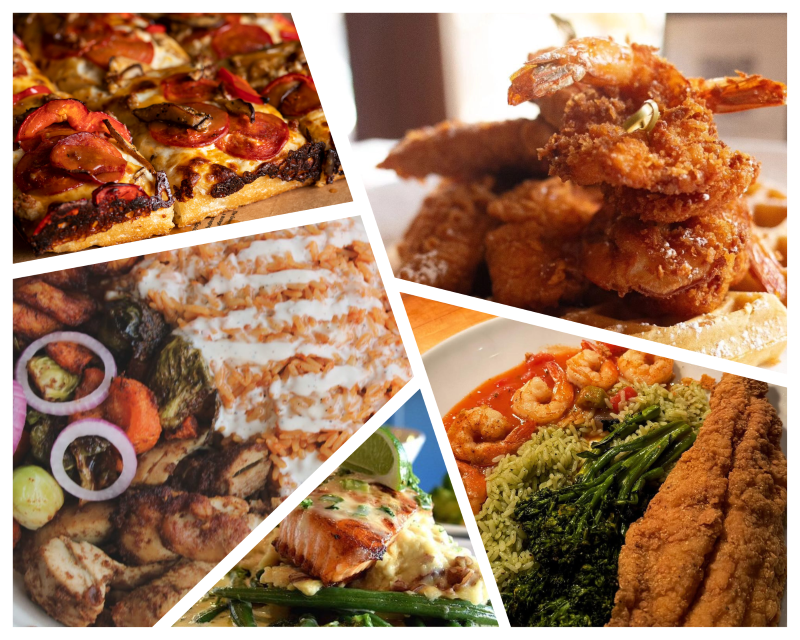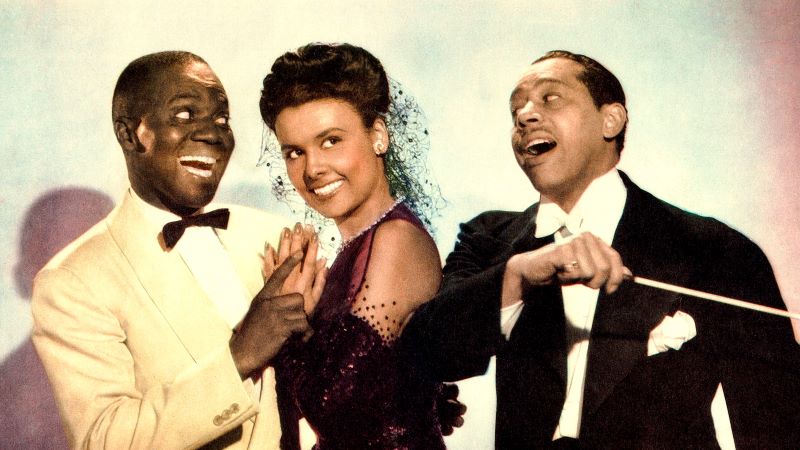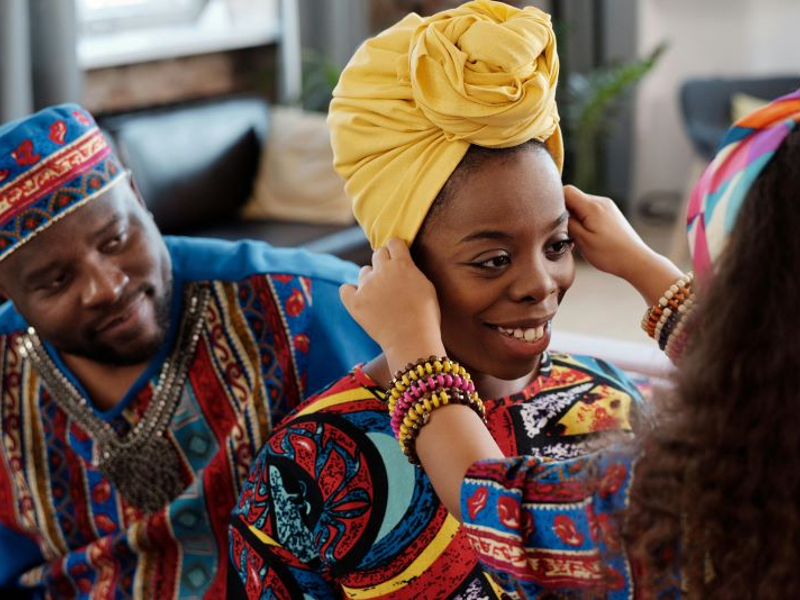
Family dressed in traditional African attire. Photo by Askar Abayev
Millions of immigrants have left Africa. Some were forcefully taken during the slave trade era. Others relocated to Europe, America, and other parts of the world in search of greener pastures or to acquire higher education. While forging new lives and adjusting to the new environment, the African diaspora, spread across the globe, has found ways to preserve and celebrate their customs.
Like many immigrant groups, preserving cultural identity is important to African diaspora communities, ensuring their children and future generations have strong traditional values foundation as they navigate a new world.
The African diaspora has a rich history of keeping their customs alive. Here are some of the ways they have achieved this:
Keeping Culture Alive Through Food
Food has been a powerful tool for Black people in the diaspora to preserve their culture. Families have not stopped cooking traditional meals just because they are in a foreign land. Some who cannot find the original ingredients from home have adapted and incorporated what’s available in their new environment. This has resulted in unique variations of traditional dishes that reflect the fusion of African and local cuisines. The recipes have been passed down from generation to generation, preserving the flavors and memories of these traditional dishes.
Africans in the diaspora also have food festivals that provide opportunities for sharing and preserving traditional recipes.
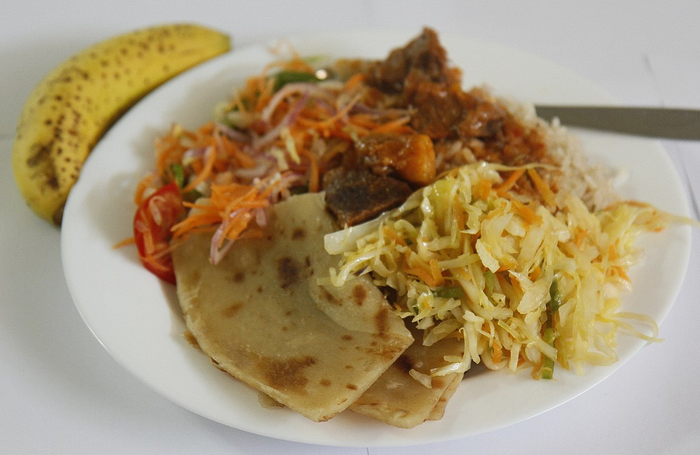
Pilau from Tanzania. Photo by Richardmwaikambo, CC BY-SA 4.0, via Wikimedia Commons
Through Cultural Festivals and Events
Many cities with a considerable amount of African diaspora populations host cultural festivals every year. Some of these festivals which have become famous over time attract people from far and wide. These events celebrate the identities, cultures, and traditions of diaspora communities, serving as a platform for sharing and experiencing African heritage. Notable examples include the Afro Nation Festival in Portugal, Africa Oyé in the UK, AfroFest in Toronto, Kenako Afrika Festival in Berlin, Odunde Festival in Philadelphia, AFRAM Festival in Baltimore, MD, and many others.
Different community gatherings promote a sense of belonging among participants. Some of these activities include African drumming circles, dance workshops, and storytelling sessions.
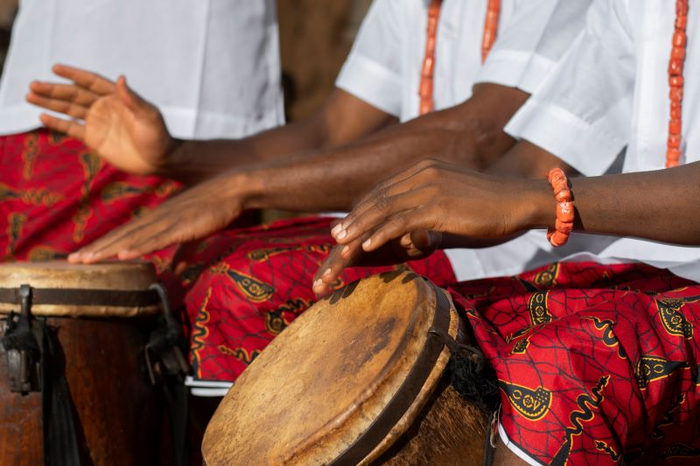
Nigerian drumming. Photo by Freepik
Preserving African Identity Through Traditional Clothing and Fashion
For many in the diaspora, traditional or cultural clothing is more than just clothes. They mean so much more; they are symbols of identity, spirituality, and community. These attires are powerful means of preserving and promoting African history and culture. Those in the diaspora proudly wear traditional clothing for special occasions, religious ceremonies, and cultural events as a way to honor their ancestral roots and proudly showcase their cultural identity.
Designers are adding a new twist by incorporating traditional African fabrics like Ankara and Kente designs into contemporary fashion. Not only does this preserve traditional fashion, but it is also an avenue to promote cultural pride and awareness. So go on and rock those Ankaras, show off those Kentes with pride, and strut into church in your dashikis.
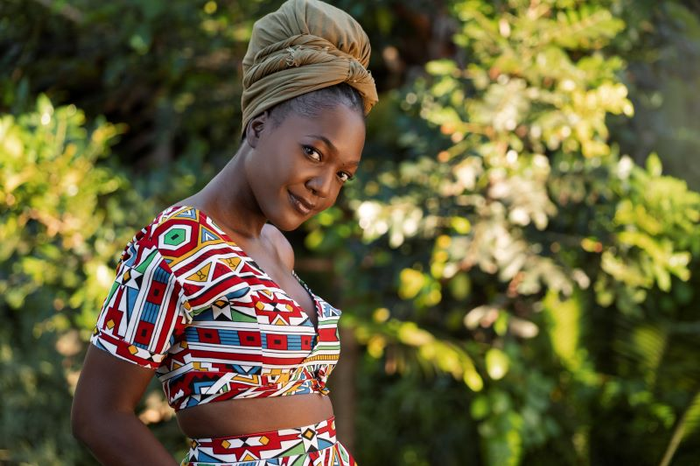
Woman wearing headwrap and Ankara dress. Image by Freepik
Sustaining African Customs in Diaspora Through Language
Many families in the diaspora are taking steps to preserve their ancestral language. They ensure their children learn to speak these languages alongside the dominant language of their country of residence.
Also, there are community centers and cultural organizations that offer classes in African languages like Swahili, Yoruba, and others. By offering these classes, the younger generations are empowered to connect with their roots and ensure these languages are kept alive.
As the world embraces technology, online platforms and apps, where one can learn African languages have also sprung up, making the process easier and more accessible to a global audience.
Using Religious Practices to Keep African Customs Alive
The diaspora has found creative ways to keep their ancestors’ customs via African spiritual practices and religions. Some of the practices have been adapted to their new environments and blended with local beliefs, creating unique expressions of faith that still hold core African spiritual principles. Santeria in the Caribbean (a blend of Yoruba beliefs and Catholicism), Haitian Vodou (combining West African Vodou with Catholicism and indigenous Taíno practices), and others are practiced and celebrated in diaspora communities.
Temples, churches, and spiritual centers provide spaces for worship and spiritual gatherings, helping to pass down traditions to younger generations.
Keeping African Customs Alive Via Music, Dance, and Storytelling
Africans outside the continent have kept tradition, cultures, and practices alive through song and dance, storytelling, and oral hand-downs. African slaves adapted oral storytelling traditions from their ancestors, passing down stories, myths, and legends from generation to generation. These stories serve as a reminder of who they are and where they come from.
Did you know that Africans across the globe have music for different occasions? There are songs for marriage ceremonies, birth, burials, farming seasons, hunting, and others. These songs are passed down through families and communities to the next generation of individuals who will keep the torch burning.
Traditional African dance is a powerful way the diaspora preserves customs. If you have ever seen a typical African dance performance, you would know that it is not just something improvised on the spot or casually learned. The symbolic gestures and precision are a testament to generations of practice. These dances are taught and performed at cultural events, dance schools, and community centers. There are specific dances with cultural significance.
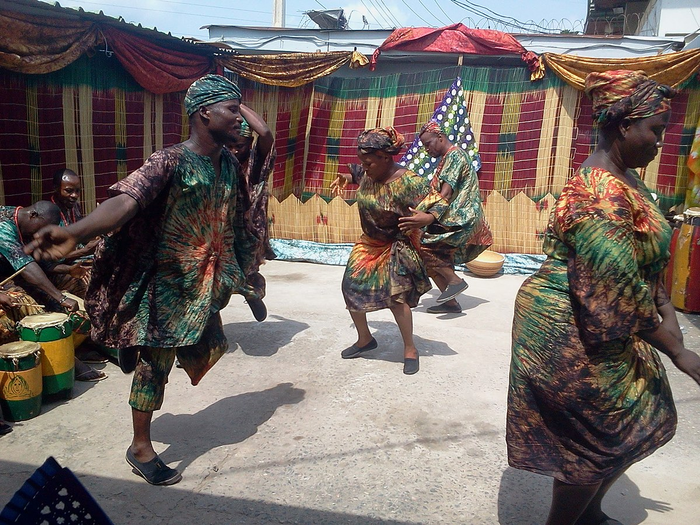
Traditional African dance. Image by Kayspecta, CC BY-SA 4.0, via Wikimedia Commons
Through Art and Craft
From intricate sculptures to symbolic textiles, diaspora communities are preserving their rich cultural heritage through various artistic forms. These arts and crafts convey various meanings that are passed down to generations. They serve as a visual language that narrates the stories, beliefs, and customs passed down through generations. For example, no two Zulu bead designs are ever the same as they convey different meanings.
As a way to prevent their customs from disappearing, Diaspora communities establish institutions dedicated to preserving and showcasing African art, history, and traditions. Art galleries and cultural exhibitions showcase the works of artists in the diaspora, such as sculpture, beadwork, and textiles, preserving the artistic heritage.
There are also craft workshops and classes that teach traditional skills, ensuring they are passed down to future generations.
Africans in the diaspora are one set of people who have stayed intimately connected to their roots. Despite facing centuries of oppression, they have found ways to preserve their customs and forge new paths for future generations. They have not forgotten where they came from and have continued to keep in touch with happenings on the continent. The ways the diaspora keeps customs alive, passing them down to their children, is a testament to the enduring strength and adaptability of African culture.


